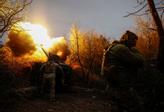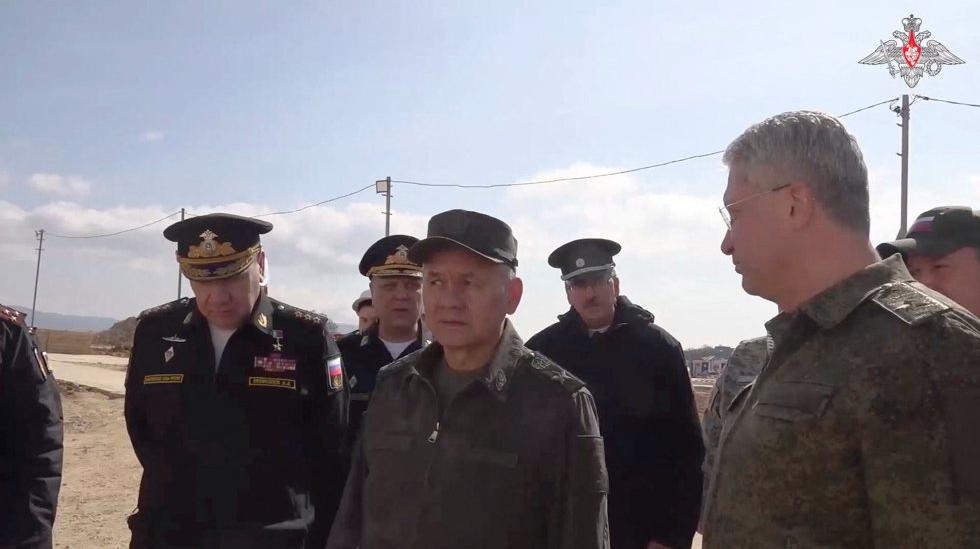Although the 32 member states of the North Atlantic Treaty Organization (NATO) possess huge amounts of weapons and soldiers, NATO is not in a position to allow member states to put their military forces on alert.
While Russia is fighting a high-intensity war, has hundreds of thousands of heavily armed soldiers in the field, and is putting the country's industry on the war footing, there is little sign that the rest of Europe has taken steps to prepare for a potential war. Russian attack.
Read all about the war in Ukraine here
It is true that many NATO countries and the European Union agree to accelerate the production of ammunition for Ukraine and for its own use, but these processes take a very long time. NATO's rapid reaction force may not be sufficient to respond to a larger-scale attack. However, a fully mobilized NATO would be a formidable opponent.
– Then NATO countries will be small in size, few and weak to a miserable extent
– Is NATO sufficiently prepared for conflict with Russia, or is the alliance lagging behind and losing balance?
Article continues below adArticle continues below ad
– No, NATO is not well prepared. There are two problems here, as I see it. First, the alliance is unable to adapt quickly enough to the limited Russian military threat. This is partly because not enough funds have been allocated, and partly because the European member countries are not good enough to work together. They work best separately. But then the members become woefully small, few in number and weak in the meeting with the largest country in the world, answers Tormod Heyer.
According to the professor at the Norwegian Defense Academy, hybrid threats and hybrid warfare are more likely scenarios than the classic war between army against army. But hybrid attacks could also be a precursor to further escalation and eventually full-scale war.
Article continues below adArticle continues below ad
Watch the video: Sharing kamikaze drone videos
NATO is too preoccupied with the worst imaginable
– NATO is too preoccupied with the worst imaginable, which is a third world war with Russia. Then NATO forgets to include the most likely scenario. Heyer points out that this is not a Russian attack against NATO military forces, but rather hybrid attacks against civil society in several small and large NATO member states.
Article continues below ad
It is believed that the so-called hybrid threats from Russia will affect the physical and digital infrastructure in municipalities, cities and densely populated areas where people live.
– The Russians will influence the will of citizens by provoking inflamed lines of conflict, such as immigration, indigenous rights, wind energy, and the green transition, for or against US bases in Norway, warns Tormod Heyer.
– Then NATO's military defense capacity will collapse

NATO Secretary General Jens Stoltenberg. Photograph: Virginia Mayo/AFP/NTP
Many NATO countries are believed to be vulnerable because military capability is strongly linked to a well-functioning civil society, unlike states with more authoritarian traits.
– If the strength of civil society is not strengthened, NATO's military defense capacity will also fracture. Not because of Russian forces. But from within their organization, without the Russians firing a shot. This is because the operational capacity of NATO forces depends on a well-functioning civil society. For example, healthcare companies that are doing well include Telenor, Bring, Norgesgruppen, Avinor, Coastal Administration and Customs Agency, to name a few. Heyer thinks it is a bit strange that the North's 2024 response did not include more civilian actors in the exercises in March.
Article continues below adArticle continues below ad
I don't think Ukraine will fall
– If it looks like Ukraine is falling into it PutinWhat will NATO do then?
NATO will then have to spend more money on defense, which means that defense budgets may rise to the levels that member states were at during the Cold War, that is, between 3 and 5 percent of gross national product. The defense industry may also have to be built up further, and the increases we are seeing today are just the beginning.
It is likely that Ukraine will not fall because the country is too large, the population is too large, and the number of soldiers is too large for Russia to impose its territorial control over the second largest country in Europe. Heyer points out that the goal for the Ukrainians is to wage a form of war that is not conducted on Russian terms while they wait for the West to increase ammunition production.
Article continues below ad
– The United States may be exposed to more pressure

Ukrainian soldiers from the Ukrainian 126th Brigade fire a D-30 howitzer at Russian forces in the Kherson region on March 12, 2024. Photograph: RFE/RL/Serhiy Nozhnenko/Reuters
He also sees a risk in Europe having to fend for itself and take greater responsibility for its security if the United States has to deal with a crisis in Taiwan, or if Trump comes to power again.
The United States may come under more pressure as it has to deal with the crisis in Europe and the growing Chinese challenge in Southeast Asia. This may partly lead to increased reliance on US nuclear weapons in European defense plans, as there are not enough US conventional forces available for two major wars at the same time. Or it could lead to the conclusion of new agreements and understandings between the Chinese, Russian, and American heads of state if a new Republican head of state comes to power in the United States. Nobody knows, notes the presenter.
Article continues below ad
– It is possible that the matter could escalate into a nuclear war
– How realistic is it for NATO, or NATO member states, to send forces to Ukraine?
Article continues below ad
– The reality of these contributions to the force is greater today than it was a year ago. However, such troop contributions are controversial because they break the boundary that Western soldiers should not face Russian forces in the field. Then it could escalate into nuclear war. For NATO to take such a risk is unacceptable, as Germany would claim, for example. But through a more flexible ad hoc coalition of like-minded Western nations, such an option would be less risky than previously thought. In this way, NATO member states will be able to create their own alliances, working outside the alliance to assemble forces and transfer them to Ukraine.

Professor at the Norwegian Defense College, Tormod Heyer. Photo: Ole Berg Rusten/NTB
Heyer believes this strategy will be important for any participating country for several different reasons.
– Partly to prevent the Ukrainian defense, and defensive positions in Donbass, from collapsing and collapsing under pressure from Russian forces, who may want to launch a new summer offensive in May and June, when the ground in eastern Ukraine dries up. Even after spring break. Heyer believes that something like this could, in the long term, reduce the security of many other neighboring countries in Eastern Europe.
Article continues below ad
– It will enhance the country’s leadership role, status and prestige
It is believed that from France's point of view it would be appropriate to intervene and deploy Western forces on Ukrainian territory.
– For France, such an option would also enhance the leadership role that the country enjoys and its status and position in Europe. Especially through the presence of a head of state who works to elevate French diplomacy and military power to a European leadership role. This could be important, from a French perspective, if it turns out that Europe's big brother in the West, the United States, is gradually stepping down from its role as the West's leading star in the Ukraine war after the presidential elections in November, Tormaud sums up. Haier.

“Organizer. Social media geek. General communicator. Bacon scholar. Proud pop culture trailblazer.”

